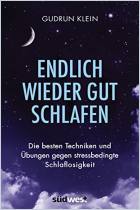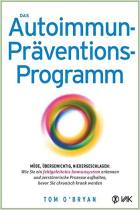While the rating tells you how good a book is according to our two core criteria, it says nothing about its particular defining features. Therefore, we use a set of 20 qualities to characterize each book by its strengths:
Applicable – You’ll get advice that can be directly applied in the workplace or in everyday situations.
Analytical – You’ll understand the inner workings of the subject matter.
Background – You’ll get contextual knowledge as a frame for informed action or analysis.
Bold – You’ll find arguments that may break with predominant views.
Comprehensive – You’ll find every aspect of the subject matter covered.
Concrete Examples – You’ll get practical advice illustrated with examples of real-world applications or anecdotes.
Controversial – You’ll be confronted with strongly debated opinions.
Eloquent – You’ll enjoy a masterfully written or presented text.
Engaging – You’ll read or watch this all the way through the end.
Eye opening – You’ll be offered highly surprising insights.
For beginners – You’ll find this to be a good primer if you’re a learner with little or no prior experience/knowledge.
For experts – You’ll get the higher-level knowledge/instructions you need as an expert.
Hot Topic – You’ll find yourself in the middle of a highly debated issue.
Innovative – You can expect some truly fresh ideas and insights on brand-new products or trends.
Insider’s take – You’ll have the privilege of learning from someone who knows her or his topic inside-out.
Inspiring – You’ll want to put into practice what you’ve read immediately.
Overview – You’ll get a broad treatment of the subject matter, mentioning all its major aspects.
Scientific – You’ll get facts and figures grounded in scientific research.
Visionary – You’ll get a glimpse of the future and what it might mean for you.
Well structured – You’ll find this to be particularly well organized to support its reception or application.


















Kommentar abgeben oder Start Discussion
Beste Grüße, Sofie Korn
ich habe dieses Buch bereits gelesen und das Energy! Programm absolviert. Hin und wieder kamen mir Zweifel, nun lese ich hier, dass nicht alle Aussagen in Anne Flecks Buch wissenschaftlich fundiert sind - können Sie mir sagen, welche das sind? Vielen Dank!
vielen Dank für Ihre Rückfrage!
Generell bezieht sich Frau Fleck oft auf die Erfahrung ihrer Patienten, wodurch viele ihrer Aussagen natürlich eher Hypothesen sind als tatsächlich wissenschaftlich belegt. Dies schreibt Frau Fleck in dem Buch auch so, doch die Unterscheidung hätte durchaus deutlicher formuliert sein können. Des Weiteren finden sich auch Verweise auf alternativmedizinische, nicht wissenschaftlich fundierte Methoden (die Orthomolekulare Medizin) oder Behauptungen zu nicht ausreichend belegten Krankheiten (das Leaky-Gut-Syndrom).
Mit freundlichen Grüßen
Belén Haefely aus der Redaktion